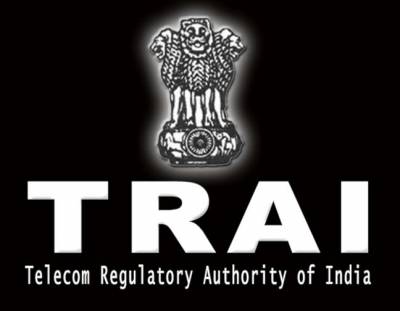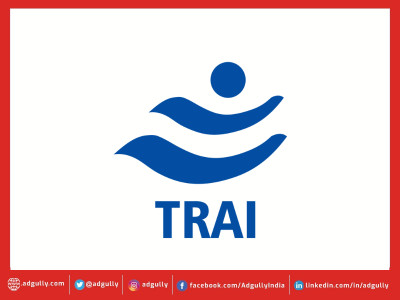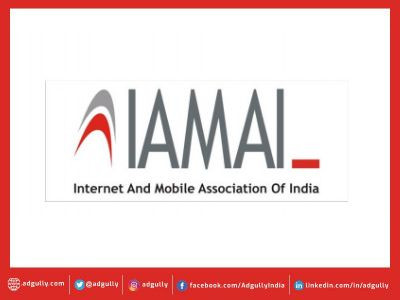Recommendations for Platform Services and Ground Based Broadcaters: TRAI
The Telecom Regulatory Authority of India has issued its latest recommendations on the Regulatory Framework for Platform Services (PS) and Ground Based Broadcasters.
The Platform Services (PS) Channels are channels owned and operated by the DPOs and distributed to their own subscribers. They are of several kinds and, depending on the design of the network, may or may not be interactive. They offer a fairly wide variety of content to their subscribers. Content generally offered includes local affairs information/news; movies; general entertainment; music; education and religion. The DTH networks offer on-demand services for which the subscriber has to pay extra. These channels include movies/ video on demand, educational channels, interactive channels, etc. While such on-demand channels are at present distributed only by the DTH operators, in the DAS environment MSOs too can provide them.
The Ground-based Channels are akin to the traditional broadcast channels, but with a strong local focus. These channels offer a variety of content such as local news and information; regional movies and music; religious content, etc. The ground-based broadcaster channels are an integral part of most cable TV networks. Like traditional TV channels, these channels may also be carried on more than one DPO network simultaneously. The owners of these channels transmit the content terrestrially to the head end of the cable TV network, i.e., there is no uplinking or downlinking of the channel and the DPOs retransmit them on commercial terms to the subscribers.
In respect to the Platform Services and the Ground Based Broadcasters, there is a lack of clarity regarding the applicable regulatory framework. DTH operators, for example, claim that PS are in the nature of value added services which are not included in the list of restricted4 value added services covered in the DTH Guidelines. Therefore, they contend that they are not required to obtain any permission for producing or offering these channels to their subscribers.
As regards cable operators, the Cable TV Act allows cable operators to transmit their own programming services. The Cable TV Rules permits MSOs in DAS areas to transmit their own programming service, either directly or through one or more LCOs. However, there are no procedures/ guidelines on registration/ regulation of the ‘own programming’ services. Further, at some point of time, this permission to transmit ‘own programming’ has been outsourced to dedicated ground-based channel operators who provide cable operators with fully developed TV channels for distribution.
Some of the ground-based broadcasters have stated that they have attempted to register their channels with MIB but failed, as they are neither uplinking nor downlinking the same. This is despite The Cable TV Networks (Regulation) Amendment Act 2011, defining “Broadcaster” in a technology-neutral manner. The said Act defines Broadcaster as “any person or a group of persons, or body corporate, or any organisation or body providing programming services and includes his or its authorized distribution agencies”.
Thus, it can be concluded that a comprehensive regulatory framework covering all types of channels is required. Such a framework will fill in the gaps that exist in providing answers to: (i) what is being shown – as not all content can be allowed to be transmitted or retransmitted; (ii) details of where a program is being shown; and (iii) who is the rights holder and otherwise responsible for the content being shown. Further, such a framework will provide regulatory neutrality amongst similar channels being distributed by DPOs.
A. Summary of Recommendations on Platform Services (PS)
1. The definition of PS shall be:
“Platform services (PS) are programs transmitted by Distribution Platform Operators (DPOs) exclusively to their own subscribers and does not include Doordarshan channels and registered TV channels. PS shall not include foreign TV channels that are not registered in India.”
2. In so far as carrying local news and current affairs bulletins on PS is concerned, the following categories will be treated as non-news and current affairs broadcast and will, therefore, be permissible:
(i) Information about local events and other local affairs, sourced locally and not obtained from news agencies or from broadcast news channels/ sources;
(ii) Information pertaining to sporting events, excluding live coverage. However live commentaries of sporting events of local nature may be permissible, if broadcasting rights for the same are not held by anyone else;
(iii) Information pertaining to Traffic and Weather;
(iv) Information pertaining to and coverage of cultural events, festivals;
(v) Coverage of topics pertaining to examinations, results, admissions, career counseling;
(vi) Availability of employment opportunities; and
(vii) Public announcements pertaining to civic amenities like electricity, water supply, natural calamities, health alerts etc. as provided by the local administration.
In addition, the Authority recommends that the DPO obtain prior permission from the Authorised Officer18 in this regard and that the State Governments should not charge any fees for according such permission. Any DPO offering PS must ensure full adherence to the Programme and Advertising Codes prescribed under the Cable Television Network Rules, 1994.
3. MIB should establish a simple online registration system for PS. All DPOs shall register their PS channels with the MIB on this system. For registration, a basic set of information may be sought from the DPO. The information sought may, inter alia, include:
(i) Name of the entity;
(ii) Corporate Identification Number (CIN) allocated by Registrar of Companies (RoC);
(iii) Identity of its beneficial owners;
(iv) Address/ location/ area of operation;
(v) DPO category/ In case of a cable TV operator - whether DAS or non-DAS; and
(vi) Nature/ genre of content proposed to be carried.
The system shall automatically generate an acknowledgement of the registration of the PS channel. Once registered, the DPO can start providing the PS.
4. The validity of registration of the PS channels should be co-terminous with the operating licence/registration of the DPO. Extension of the registration/ permission period of the DPO would simultaneously extend the validity of the registered PS channels offered; consequently, there is no renewal requirement for the registration of PS channels. Further, before discontinuation or effecting any change in the details about a PS channel, the DPO concerned shall cancel or amend online the registration obtained for that channel.
5. No annual fees should be imposed on PS channels; however, a one-time registration fee of ₹1000 per PS channel should be charged. An online payment gateway for acceptance of the registration fees may be incorporated by MIB in the recommended online registration system.
6. The transferability of registration and interconnection with other networks for sharing of PS should not be allowed.
7. Regarding the insertion of PS channels by LCOs in DAS area, the Authority recommends that LCOs and MSOs operating in that area may work out any appropriate and technologically feasible arrangement to ensure that locally relevant content is available on PS channels in a digitally addressable encrypted format.
8. Any person/ entity desirous of providing PS, or is already providing such services, must be incorporated as a company under the Indian Companies Act, 2013 and the rules framed thereunder.
9. A maximum number of 5 PS channels may be offered by the cable operators in non-DAS areas. In DAS areas and for all other platforms, a maximum of 15 PS channels may be offered by the DPOs. These numbers are the number of PS channels to be made available at the subscribers’ end.
10. No change in the existing FDI limits and Net-worth requirements be made for DPOs offering PS.
11. The Authority notes that all DPOs, other than MSOs and LCOs operating in non-DAS areas, are already security cleared. For these MSOs and LCOs, the Authority recommends that at any time before the MIB obtains the security clearance, it is determined that the programming service offered on PS and which has been registered on the online system is inimical to India’s national security or to the public interest, MIB may require the DPO to withdraw from distribution the PS Channel or the programming service and/ or cancel the registration.
12. Any DPO offering PS retain, with itself, a recording of all PS channel programs for a period of 90 days; a written log/ register should also be maintained about such program for a period of 1 year from the date of broadcast. The recording and the register can be examined by the Authorised Officer19 and the State/ District Monitoring Committee20 appointed by the MIB as, when and if required. For PS distributed on a pan-India basis MIB shall be the monitoring agency.
13. The first violation of the PS Guidelines shall lead to prohibition on transmission of the PS channel for a period of up to 30 days; for the second violation, the prohibition on transmission of the PS channel shall be for a period of up to 90 days; for the third violation the registration of the PS shall be revoked and the channel concerned shall not be transmitted. Consequently, the number of PS channels that the DPO can transmit thereafter will be appropriately reduced.
14. A maximum time period of 12 months be granted for full compliance with the new regulatory framework.
B. Regulatory Framework for Ground-based Broadcasters
15. The MIB may establish a regulatory framework for ground-based broadcasters. The framework shall be the same as the framework contained in the Uplinking/ Downlinking Guidelines of MIB for traditional satellite-based broadcasters, to the extent applicable to the ground-based broadcast model. Thus, clearances/ permissions for spectrum usage from the DoS and WPC shall not apply.
16. Considering the smaller reach of some of the ground-based broadcasters, the Authority recommends that a State should be taken as a unit and a reach in 15 or more States should be taken as a pan-India presence. The States that are members of the North Eastern Council (NEC) may be considered to be equivalent to one State, for this purpose. At the pan-India level, a ground-based broadcaster shall take on the same obligations as a traditional satellite-based broadcaster. A smaller footprint shall entail a pro rata obligation equivalent to 7% of the traditional satellite-based broadcasters’ obligation, for every State that the channel is distributed. The pro rata reduction shall be applicable to the net-worth requirement, permission and annual fee.
17. A ground-based broadcaster vertically integrated with a DPO, shall be subject to all the restrictions on vertically integrated entities recommended by the Authority in its ‘Recommendations on Issues related to New DTH Licenses’ issued on July 23, 2014. For ease of reference these are reproduced at Annex 5.
C. Re-transmission of FM Radio
18. Retransmission of FM radio channels should be permitted only after execution of an appropriate commercial agreement with all the rights holders. For retransmission of FM radio channels on TV channel distribution networks, the proposed guidelines for ground-based broadcasters should apply to the FM radio operators. However, this matter will be revisited at a later point in time, once the FM radio industry fully develops in India.














Share
Facebook
YouTube
Tweet
Twitter
LinkedIn